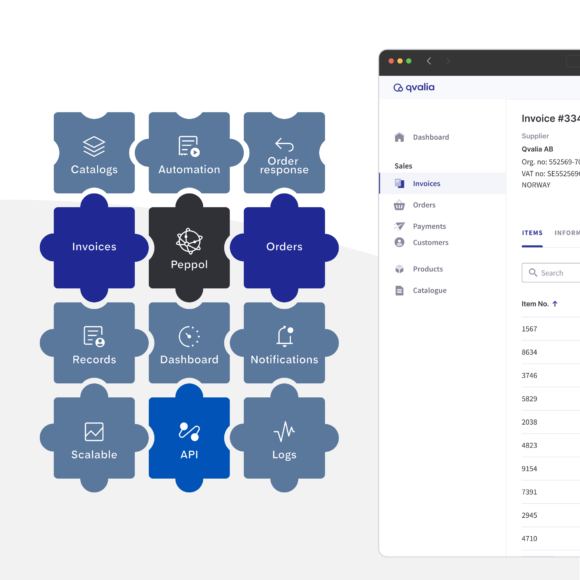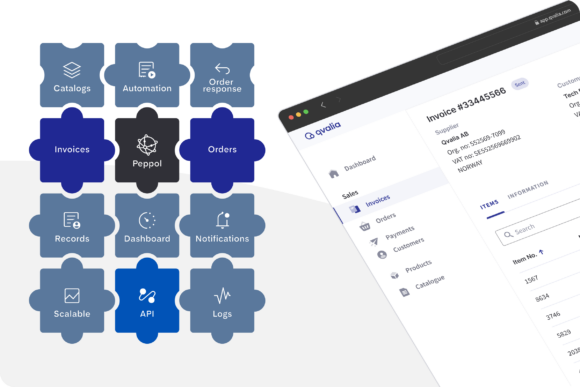We’re thrilled to announce the upcoming release of a brand new solution on Qvalia: E-order management for small businesses.
For the first time, businesses of all sizes can access electronic order management for purchase orders within the Peppol network and get started within minutes. It provides ERP-grade capabilities but is user-friendly and affordable without the need for integration, complex setup, or testing.
Get full control of each sales transaction, communicate with customers using response messages, and comply with the increasing demand for digitized transactions and business messaging — a solution to supercharge sales processes.
Key features:
- Receive sales e-orders
- Keep track and manage orders
- Send order responses
- Turn e-orders into e-invoices
- Comply with customers’ transaction requirements
- Standardized Peppol BIS formats
- Eight message types
- Peppol ID registration
It’s set for release in Q1 2024, but contact us today for more information and secure early access.
What are electronic orders?
A purchase order (PO) is a purchase request that customers can make through various methods, including email, phone calls, printed forms, or electronic orders through their purchasing or e-commerce systems.
Upon receiving the order, the supplier processes it according to their procedures. Traditionally, this involved confirming the order by emailing the customer to initiate the delivery phase.
E-orders facilitate complete digital processes, including communication throughout the transaction using response messages. In the Peppol system, the order processing and information exchange adhere to a standardized format, offering numerous advantages like instantaneous, error-free, and secure data transmission.
Why do businesses need e-order management?
Increasingly, businesses adopt e-orders to meet the evolving requirements of customers, who are embracing digital solutions for efficiency and compliance.
The shift towards digitalization in business processes is not just a trend but a fundamental change, driven by the need for faster, more accurate, and transparent transactions. E-orders streamline operations, reduce errors, and ensure regulatory compliance, which is becoming more crucial in a tightly controlled business environment. By adopting e-ordering, small businesses can stay competitive, foster better customer relationships, and align with the digital economy’s standards, essential for growth and sustainability in an increasingly interconnected market.


